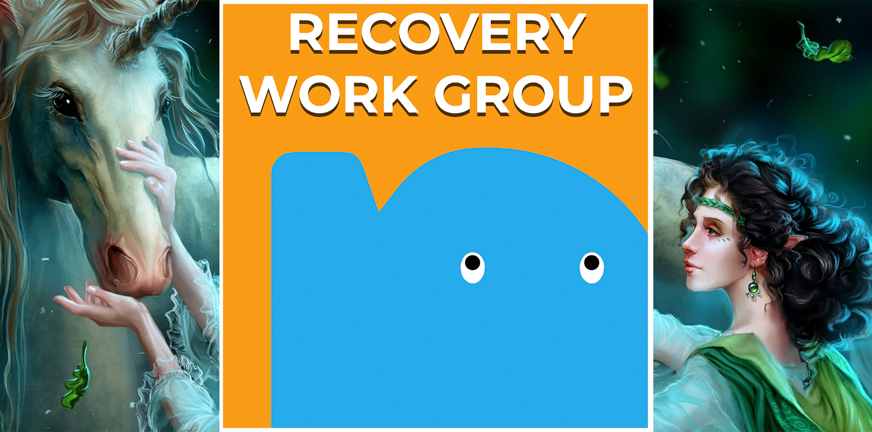
A recovery work group offers self-help, yet in a community setting. Most of these groups are guided by a lived experience worker: someone who has personally gone through psychosis (or other mental health issues) and managed to recover from it.
Lived experience worker
A lived experience worker has had an education to learn how his/her own experiences with mental illness can be used to support others. Most of them have also been trained to coach groups of people.
A recovery work group offers peer support: you can exchange experiences and learn from each other. Not only about what went wrong, but also about solutions to such situations. You support each other, and often make new friends. And most importantly: it makes you realise you are not the only one struggling with mental health issues.
Recovery group
In a good recovery group, members encourage each other to regain control of their life, slowly and step by step. Others who have been in the same situation, can often see much more clearly what is holding you back (your fears and weaknesses) and in which ways you are actually doing well and moving forward.
In short: these groups bring you in touch with the idea of recovery. Here you can share your thoughts and hear experiences from others, usually on the basis of themes. These recovery themes are often discussed in depth. Examples of such themes are:
- What does recovery actually mean?
- Where do you find your support?
- How to deal with prejudice and misunderstandings from people around you?
- When should you be open about your mental health history, and when is it best not to?
- What to do when you are unhappy with your medication or (psycho)therapy?
- What kind of work or which education should you do? And how to get there?
- How to deal with relationships, friendships and romance?
Recovery groups and similar peer support groups can be found in many countries and places, but sometimes you have to look hard for them. In some cases, a social map of your country can help you find your way.




